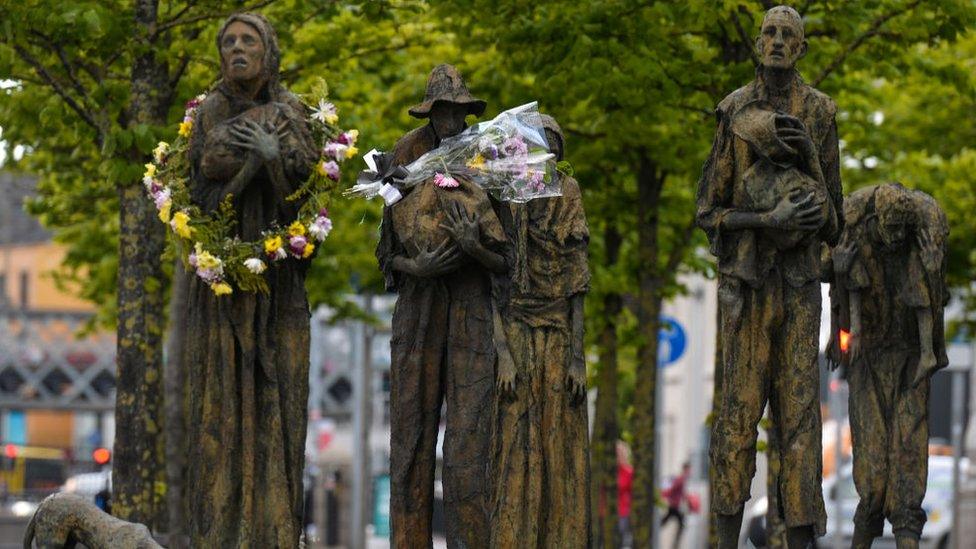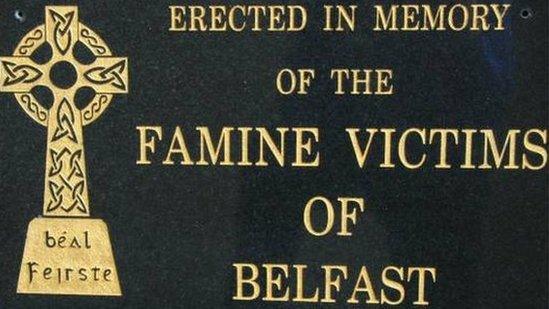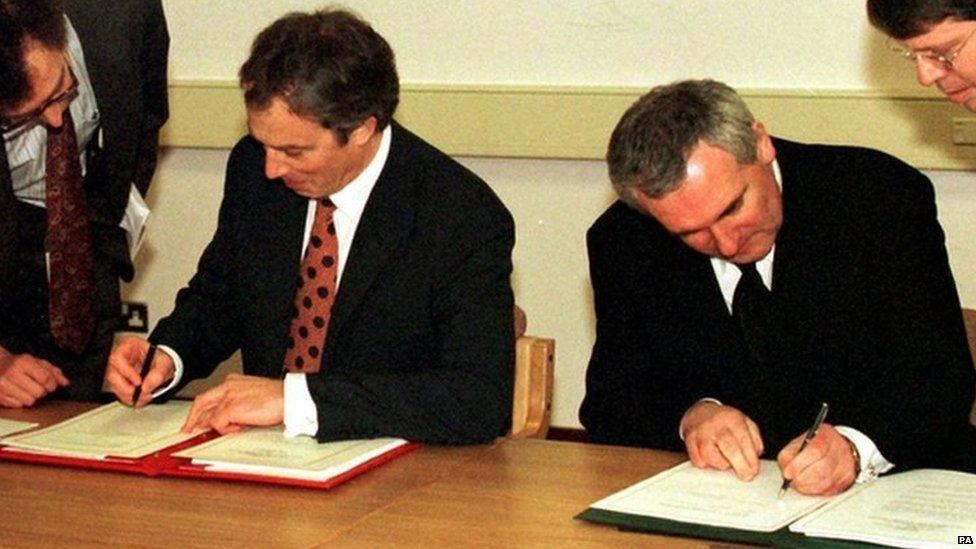Tony Blair's Irish Famine message not signed off by him, archive papers show
- Published

Tony Blair's admission of the British government's culpability over the Irish Famine was neither written nor approved by the former PM before it was sent, National Archive papers show.
Mr Blair's private secretary Sir John Holmes wrote it but could not reach him for final approval, according to files.
The 1997 statement was welcomed as an overdue recognition of British failure.
More than a million people died between 1845-52 in the famine, when the entire island of Ireland was part of the UK.
And about two million more people emigrated over a decade.
In May 1997, the newly-elected prime minister was invited to send a message to the official commemoration of the Irish Famine, held in the small town of Millstreet in County Cork.
Mr Blair's statement was read by actor Gabriel Byrne on 31 May as the prime minister was unable to attend the event.
The message was needed at short notice and Sir John could not reach Mr Blair for his final approval, the documents released by the National Archives, in Kew, revealed.
On 30 May, Sir John wrote to Mr Blair: "I tried to clear the principle of this with you this afternoon by telephone, but you were not around."
Sir John said he wanted to "avoid the impression of a snub" so approved the text "off my own bat" and sent it to the British Embassy in Dublin.
He knew the statement would "get quite a lot of publicity".
It recognised the famine as a "defining event" in the history of Ireland and Britain and said: "Those who governed in London at the time failed their people through standing by while a crop failure turned into a massive human tragedy."
Sir John considered this "fell well short of an apology" and was "no more than a statement of fact".

More than one million people died in the Great Famine of 1845-52, marked by the Famine Memorial in Dublin
He said he had checked with "all and sundry" including Alastair Campbell, then Downing Street press secretary, and "everyone" thought that reference was right.
However, it was seen by the Irish press as an "implicit apology" and was warmly welcomed.
The British Ambassador to Ireland, Veronica Sutherland, wrote: "In all the circumstances, events could not have turned out better."
The then Taoiseach [Irish PM] John Bruton said: "The prime minister is to be complimented for the thought and care shown in this statement."
'A bit nervous'
Speaking to the BBC, Sir John said he remembered what happened because he "drafted something I thought was not particularly novel and was somewhat surprised to find that the following morning it was the lead item on the BBC".
He said he was "a bit nervous" because he "hadn't had time to clear it [the statement] with the prime minister in advance".
But, he said, Mr Blair did not challenge him, saying he believed the prime minister to be "very happy with what I'd done" as it was "very important in sending psychological messages about readiness to be sensitive to nationalist, Irish concerns".
This was important "in creating the right sort of atmosphere for the ceasefire, for the talks and so on".
Sir John said while it was an "unexceptionable" statement it had a huge impact and was a useful thing to do.
He did not remember any comeback for him, he said, adding: "Luckily."
The statement was not an apology, Sir John said, it was an acknowledgement that the British government had not done enough to prevent the consequences of the famine.
Related topics
- Published26 September 2015

- Published9 April 2018
